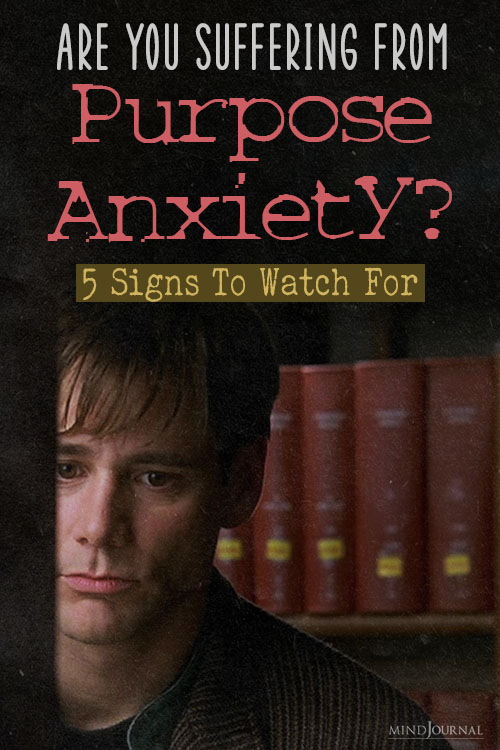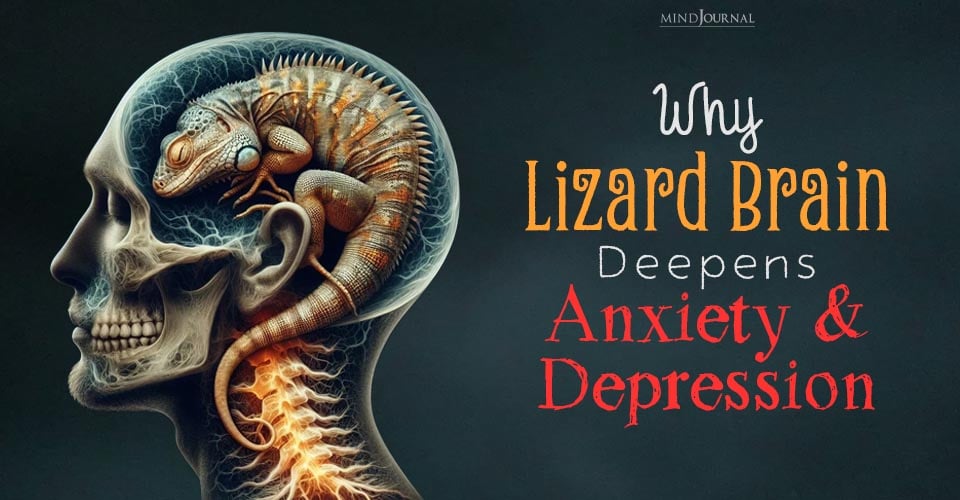Feeling pressured to have everything figured out, can lead to feelings of inadequacy or restlessness. Below are five signs of purpose anxiety that often arises when you feel like you’re not on “right” path in life!
How the search for purpose can cause stress—and what to do about it.

Key points
- Purpose anxiety fuels job-hopping, imposter syndrome, and constant comparison, leaving us unfulfilled.
- Purpose nihilism makes us believe meaning doesn’t exist, but studies show purpose boosts health and happiness.
- Searching for one “true” purpose creates stress—purpose is built through passions, not a single grand mission.
- Let go of rigid goals—true purpose is about enjoying meaningful activities, not fearing failure.
Read More Here: Climate Anxiety: The Silent Epidemic Impacting Millions – Are You Affected?
In 2014, psychologist Larissa Rainey published a groundbreaking paper identifying purpose anxiety, a phenomenon affecting up to 91% of people at some point in their lives. Purpose anxiety is the stress, insecurity, fatigue, and frustration that arise from trying to define and achieve one’s life purpose.
In today’s world—where we are constantly encouraged to “find our calling” or “live our best life”—this pressure can become overwhelming, making us feel stuck, lost, or even like we’re failing at life.
But how do you know if you’re experiencing purpose anxiety? While some signs are obvious, others can be subtle and easy to overlook.
1. Job Hopping Without Fulfillment
Changing jobs frequently is not inherently bad—it can be a strategic way to gain new experiences, improve financial stability, and build a more satisfying career. However, if you find yourself constantly chasing the “perfect” job but never feeling truly satisfied, it may be a sign of Purpose Anxiety.
Many people mistakenly believe that purpose is something external—that a certain title, salary, or industry will finally bring them the meaning they crave. But true purpose isn’t something you “find” in a job description. It’s something you create through the way you engage with your work and life.
Rather than obsessing over whether a particular job is “the one,” consider asking yourself:
- What aspects of my work bring me joy or energy?
- What type of impact do I want to make, regardless of the job title?
- Am I prioritizing purpose-driven activities outside of work as well?
If your work feels meaningless, the solution isn’t necessarily a new job—it may be shifting your perspective on what brings fulfillment.
2. Imposter Syndrome
Do you often feel like a fraud, despite your accomplishments? Do you fear that one day, people will “find out” you don’t actually deserve your success? Imposter syndrome is a common experience, particularly among high-achievers, but it can also be a sign of Purpose Anxiety.
In many cases, imposter syndrome isn’t just about self-doubt—it may be a deeper indication that the role you’re in doesn’t truly align with your passions, values, or long-term goals. Instead of asking, “Am I good enough for this job?” try flipping the question: “Is this job good enough for me?”
If you constantly feel out of place or disconnected from your work, it might not be a matter of improving your skills or gaining confidence. Instead, it may be a sign that your energy is being spent in the wrong place—and that it’s time to reevaluate what kind of work truly excites and fulfills you.
3. The Comparison Trap
Social media and professional networking sites have made it easier than ever to compare our success to others. If you find yourself constantly measuring your achievements against those of your peers—and feeling like you’re falling short—it could be a major sign of purpose anxiety.
Comparison heightens purpose anxiety because it tricks us into believing that someone else’s life path should be ours. Instead of tuning into what excites and fulfills us, we look at others’ careers, lifestyles, or accolades and feel pressure to replicate their success.
But here’s the problem: Purpose is deeply personal. What fulfills one person may not fulfill another. The key to overcoming comparison-driven anxiety is shifting the focus back to yourself:
- What kinds of activities naturally energize me?
- If I removed external pressures, what would I want to pursue?
- What does success mean to me—not based on societal expectations, but based on what genuinely brings me joy?
Instead of trying to fit into someone else’s “belt loops,” as the saying goes, buy your own belt and create your own notches.
4. Purpose Nihilism: Believing Purpose Doesn’t Exist
One of the more extreme reactions to Purpose Anxiety is giving up on the idea of purpose altogether—what I call purpose Nihilism. This is the belief that life has no inherent purpose and that searching for meaning is futile. It’s a response born out of frustration—when people feel like they’ve searched for purpose but haven’t found it, they sometimes conclude that purpose itself is an illusion.
However, studies consistently show that a strong sense of purpose is linked to greater happiness, better health, and even a longer lifespan. When people abandon the search for meaning, they often experience increased negativity, disengagement, and even depression.
Instead of rejecting the idea of purpose altogether, it can be helpful to reframe what purpose means:
- Purpose isn’t a single, grand mission. It’s built through everyday actions that bring fulfillment.
- Purpose doesn’t have to be found—it can be created. Start by engaging in small activities that light you up.
- It’s okay if purpose changes over time. Many people have multiple sources of meaning throughout their lives.
Purpose isn’t a mythical treasure waiting to be discovered—it’s a dynamic, evolving force that we build through our daily choices.
5. The “One True Purpose” Myth
Many people believe that they have one, singular life purpose—and if they don’t find it, their life will lack meaning. This all-or-nothing mindset is one of the biggest contributors to Purpose Anxiety.
The reality is that purpose is fluid. Some people find deep fulfillment in a specific career or calling, but many others discover meaning in a combination of interests, relationships, and experiences. The belief that purpose must be some big, grand, singular thing is not only unrealistic—it’s paralyzing.
Instead of thinking, “I must find my one purpose,” try asking:
- What activities make me feel engaged and alive?
- How can I build a life that includes more of those activities?
- What small steps can I take to cultivate meaning, rather than searching for a single defining purpose?
By letting go of the pressure to find one all-encompassing purpose and instead focusing on building a meaningful life through daily actions, you reduce anxiety and make space for a more fulfilling existence.
Final Thoughts: How to Overcome Purpose Anxiety

If you recognize yourself in these signs, don’t panic—Purpose Anxiety is common, and it’s something you can work through. The key is shifting your mindset:
- Stop chasing a “perfect” job and focus on finding meaning in what you do.
- Instead of asking if you’re good enough for your career, ask if your career is good enough for you.
- Let go of comparison—your path is unique to you.
- Purpose isn’t something you find—it’s something you build over time.
Read More Here: What Is Performance Anxiety? 10 Ways To Overcome Your Fear Of Being Judged
When we shift from seeking purpose to creating it, we eliminate anxiety and make space for genuine fulfillment. Purpose is not a destination—it’s the journey of engaging in what makes you come alive.
References
Rainey, L. (2014). Defining Purpose Anxiety and Its Psychological Impact.
Steptoe, A., Deaton, A., & Stone, A. A. (2015). Subjective wellbeing, health, and ageing. The Lancet, 385(9968), 640-648.
Grumet, J. (2025). The Purpose Code: How to unlock meaning, maximize happiness, and leave a lasting legacy
Written by Jordan Grumet M.D.
Originally appeared on: Psychology Today










Leave a Reply